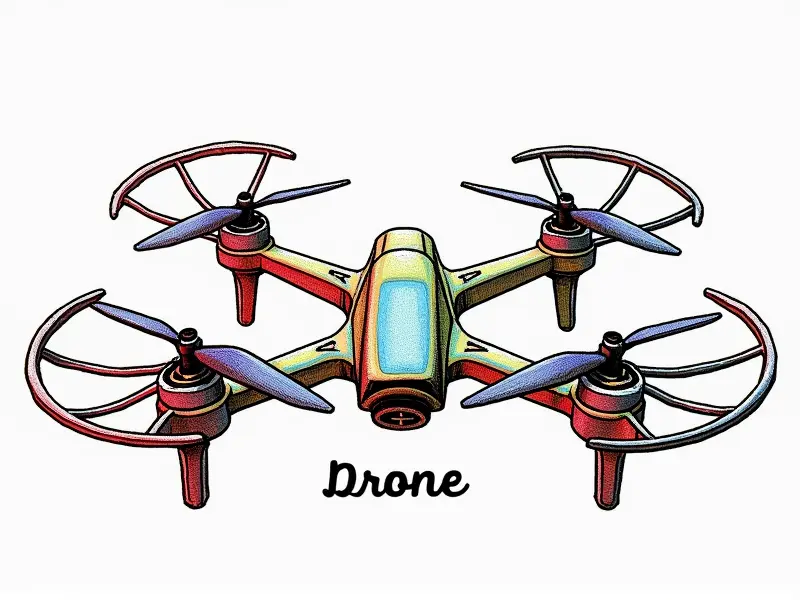Brushless motor for 3D printing

Ultimate Guide to Brushless Motor Setup for Your 3D Printer
Welcome to the ultimate guide on brushless motor setup for your 3D printer! This comprehensive article will walk you through everything you need to know about integrating BLDC (Brushless DC) motors into your printing process. From choosing the right motor to optimizing performance, we've got you covered.
Optimizing Your 3D Printer with BLDCs
The transition from traditional stepper motors to brushless DC motors can significantly enhance the precision and speed of your 3D prints. Here’s how:
- Increased Precision: Brushless motors offer smoother motion, reducing vibration and improving print quality.
- Faster Print Speeds: BLDC motors can achieve higher RPM (revolutions per minute) compared to stepper motors, allowing for quicker prints without compromising accuracy.
- Reduced Wear and Tear: The absence of brushes in BLDC motors means less friction and wear, extending the lifespan of your printer components.
Essential Brushless Motors for 3D Builds
Selecting the right brushless motor is crucial for achieving optimal performance. Here are some key considerations:
- Torque and Power Output: Choose a motor with sufficient torque to handle your printer’s load requirements.
- Duty Cycle: Ensure the motor can operate continuously without overheating, especially for long print runs.
- Compatibility: Verify that the BLDC motor is compatible with your 3D printer's firmware and control board.
High-Performance BLDC Motors Explained
High-performance brushless motors are designed for demanding applications, offering superior performance characteristics:
- Hall Sensors: These sensors provide precise feedback to the motor controller, enhancing control and responsiveness.
- Copper Winding Efficiency: High-quality copper windings improve electrical efficiency and heat dissipation.
- Vibration Dampening: Advanced designs include features like magnetic dampers to minimize vibration during operation.
Choosing the Right Brushless Motor
The selection process involves several factors:
- Application Requirements: Consider the specific demands of your 3D printing projects, such as print speed and layer thickness.
- Budget Constraints: While high-end motors offer superior performance, there are affordable options that still deliver excellent results.
- Brand Reputation: Opt for well-established brands known for reliability and durability in the 3D printing community.
The Impact of BLDC on 3D Printing
The adoption of brushless DC motors has revolutionized 3D printing, offering numerous benefits:
- Enhanced Print Quality: Reduced vibration and smoother motion result in sharper details and more consistent layers.
- Improved Reliability: BLDC motors are less prone to mechanical failures compared to stepper motors, ensuring longer uptime.
- Eco-Friendly Operation: Lower energy consumption and reduced noise levels contribute to a greener printing environment.
Guide to BLDC Motors in 3D Printing
This section provides step-by-step guidance on setting up your brushless motor for optimal performance:
- Installation: Follow manufacturer instructions carefully, ensuring proper alignment and secure mounting.
- Tuning Parameters: Adjust firmware settings to optimize motor control and responsiveness.
- Maintenance Tips: Regular cleaning and lubrication can extend the lifespan of your BLDC motor.
Maximize Your 3D Prints with BLDCs
To get the most out of your brushless DC motors, consider these tips:
- Upgrade Firmware: Ensure you have the latest firmware updates that support BLDC motor capabilities.
- Monitor Temperatures: Use thermal sensors to keep track of motor temperatures and prevent overheating.
- Experiment with Settings: Fine-tune your print settings for different materials and layer heights to achieve the best results.
Essential Tips for Brushless Motor Setup
Here are some critical tips to ensure a smooth setup process:
- Proper Wiring: Ensure all connections are secure and properly insulated to prevent electrical issues.
- Belt Tensioning: Adjust belt tension for optimal performance, avoiding both too loose and too tight configurations.
- Calibration: Perform thorough calibration procedures to align your motor with the printer’s mechanics accurately.
Affordable Yet Powerful Brushless Options
If budget constraints are a concern, there are still excellent brushless motors available at reasonable prices:
- Budget-Friendly Models: Look for cost-effective options that offer good performance and reliability.
- User Reviews: Check user reviews and ratings to find highly recommended affordable BLDC motors.
- Compatibility Checks: Verify compatibility with your printer model before making a purchase.
Ultimate Guide to BLDC Motor Selection
This final section summarizes key points for selecting the perfect brushless motor for your 3D printing needs:
- Evaluate Performance Metrics: Consider torque, power output, and duty cycle when choosing a motor.
- Budget Allocation: Determine how much you’re willing to spend while balancing performance expectations.
- Consult Experts: Reach out to the 3D printing community or manufacturers for advice on selecting the best BLDC motor.
Conclusion
In conclusion, transitioning to brushless DC motors can significantly enhance your 3D printing experience. By carefully considering factors such as performance metrics, budget constraints, and compatibility, you can choose a high-quality BLDC motor that meets your specific needs. Follow our comprehensive guide to ensure a smooth setup process and maximize the benefits of these advanced motors in your 3D prints.

